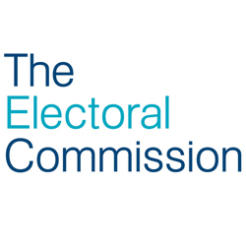The Electoral Commission has said charities must record every time an employee is encouraged to tweet or post to Facebook about a potentially political issue, to check whether they should register under the Lobbying Act.
The Commission said it will monitor charities’ social media activity, including employees using personal accounts, in order to check whether those charities are compliant with the Act.
Speaking at the annual Charity Law Association conference last week, Kate Engles, head of policy at the Electoral Commission, spoke of a “two-pronged gateway test” that charity campaigners should examine to determine whether a campaign can be classed as party political. She said campaigns that meet both a “purpose test” and a “public test” will meet regulation requirements under the new rules.
“An organisation that regularly communicates by more informal means like Twitter, Facebook or commercial mailing lists would still be seen as part of the public. And this is quite an important thing for campaigners to think about when they are planning their activities,” she said.
According to Engles, a charity campaign may meet regulation requirements even if it doesn’t mention political parties or candidates.
“The law says that you can be covered by the rules even if the activity is intended to achieve another purpose as well,” she said. “The activity and spending can be covered if it doesn’t specifically mention parties or groups of candidates. That’s to cover where people are trying to get around the rules and say they are doing something else.”
Guidance on social media use on the Electoral Commission’s website, says that the cost of a tweet is negligible but that charity campaigners need to consider the wider costs of using social media such as staff costs, design costs and the costs of images that are posted.
A spokesman for the Electoral Commission told Civil Society News: “We monitor social media, we monitor advertising and will we monitor what people are saying.
“If an organisation has ten members of staff and asks them to all post a tweet on their own profile, you would add up how much time that takes for someone to post a tweet. That would account towards their overall cost. They can spend a certain amount before they need to register with the Commission.
"What you would do is just keep a record of how much it costs ten members of staff to post a tweet and how much time that takes.
"If the organisation is encouraging its staff to do that then they need to keep a record of the fact that they have told their staff on X number of occasions that we would like you to post a tweet about the charity’s campaign.
“Some charities will be tweeting or Facebooking about something that’s not related to a general election campaign and obviously that doesn’t count.”
According to the Lobbying Act legislation, charities spending more than £20,000 per annum in England or £10,000 in the rest of the UK, are required to register with the Electoral Commission.










